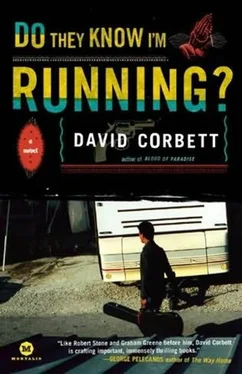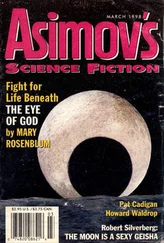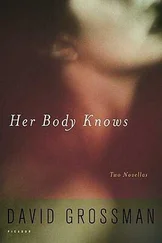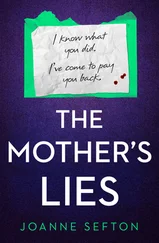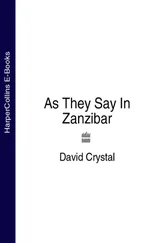Despite this, legislation was drafted in the House of Representatives that would make being an undocumented immigrant a felony, forever barring a path to citizenship or even legal status. And attempts to provide a means to citizenship for the children of undocumented workers, many of whom arrived as infants and know no other country than the U.S., were sabotaged by the anti-immigrant bloc in Congress.
To paraphrase the father of a Latino U.S. marine killed in Iraq: On the one hand they’re recruiting the young men to fight and die, while on the other they’re kicking the parents and children out of the country.
Who Do I Think I Am?
Outrage is a luxury. Writers write, and I felt a particular need to contribute something, to bark back at the distorting invective. I felt it particularly important that Anglos chime in on the side of Latinos out of a sense of justice and simple decency. Silence was not an option.
But I’m a novelist, not a pundit. And what right does an American mutt like me, a white boy from the very heart of Middle America, have to depict in fiction the life of a Latino family?
The old arguments against white authors imagining the lives of people of color addressed power, maintaining that the servant always understood the master, if only out of bald necessity and naked survival, but the master was intrinsically self-deluded about the servant. Such reasoning, with its colonial baggage, elevated the term “insensitivity” to a cultural death sentence. The damning reception inflicted on William Styron’s The Confessions of Nat Turner , in which the author tried to mine the inner lives of African slaves, would be hard to replicate today, and that’s a good thing. No work of art deserves to be strangled in its crib. But that doesn’t mean we’ve all somehow become sensitive.
I studied math and music, both arguably universal languages. And though I came to Latino culture first through fiction-Borges, Amado, Cortazar-I gained my greatest appreciation of it through music, perhaps its most accessible art form. Also, being raised Catholic, I felt a special fascination with the manner in which religion took hold in the southerly Americas, both Gothic and primitive, awake to suffering, fiercely immediate. From where I sat, Latin culture in general and its music in particular possessed a vibrancy, a passion, a sense of both the tragic and the absurd I found mesmerizing and too often lacking in what I saw and heard around me here in the States. Steely Dan was a hip act but Santana could blister your soul. And Santana led me to Tito Puente, who led me to Ray Barretto, who led me to Poncho Sanchez and on and on: Willie Bobo to Eric Bobo to Los Lobos to Celso Piña to Control Machete to Julieta Venegas to Ana Gabriel to Pescozada… The chain hasn’t stopped in thirty years. I pray to God it never does.
Admiring a culture, though, doesn’t grant me a right to depict it in my own work. Artists steal from one another at will, musicians especially; it’s almost lazy not to. But can fiction writers get away with it?
All artists are outsiders to the extent they observe more than they participate, but everyone joins in to some degree, just as we all reflect. Rather, the crucial question seems to be at what point does observation fail us, i.e., when do we begin to imagine, and why?
I began with my third novel, Blood of Paradise , because I felt a need to address the current state of affairs in El Salvador, a country whose current political, social and economic life was significantly affected by U.S. policy, and which I saw being alarmingly misrepresented by those who wished to propose a “Salvador Option” in Iraq. I also had Salvadoran friends who introduced me to their country, and felt an obligation to portray it as they saw it.
Do They Know I’m Running? was simply a continuation of that trajectory, an attempt to depict, as best I could, the effect on Latino families of current immigration policy; the predation on migrants by organized crime and street gangs who now control the underground railroad that transports not just drugs and guns but human beings into the U.S.; and the various ills befalling Mexico and Central America. I was moved because I see these effects all around me in people I know and interact with daily or have met in my travels, some of whom are not just acquaintances but colleagues, neighbors, friends-people for whom in many cases I feel not just fondness but admiration, and whose lives I felt deserved a more fair and honest representation than they were too often getting in the media.
Roque was partially inspired by a number of young Latino musicians I have met and befriended during performances at various Bay Area venues, some of whom reminded me of my own musical career with its hopes and hardship, the disillusion, the resilience.
Godo was partially conceived after reading accounts of real Latino servicemen who returned from Iraq, with further inspiration provided by my encounters with Latino-American men and women in uniform at the U.S. Southern Command and the Western Hemisphere Institute for Security Cooperation.
Tía Lucha was based on a number of Salvadoran immigrants I have met, including a single divorcee I know who lost her job as office manager for a German construction firm in San Salvador after the 2002 earthquake and was forced to emigrate to find work, leaving her aging mother behind with the hope of building a better future for her children here in the States.
Happy came to me as a patchwork, pieced together from traits observed in various young men I know, one a photographer who supports himself by managing the best taco wagon in my home town, another who works as a paramedic, tending the injured and saving lives while constantly worrying about being deported.
Tío Faustino was a fusion of my own father, who drove a truck to put himself through college and sometimes dreamed of running his own trucking firm; a handful of port truck drivers to whom I was introduced by Ron Carver of the International Brotherhood of Teamsters; and some of the interviewees of documentary filmmaker Don North, who returned to Guazapa Volcano after twenty years to talk to the survivors of the civil war offensive that took place there.
The gang members depicted in the book were modeled after real young men (and their families and friends) whom I met in my travels to Central America or while working as a private investigator, in the latter case when I was entrusted with protecting their rights, their freedom, sometimes even their lives.
But in all these cases I blended the true with the imagined, what I knew with what I felt the story required. And taking that additional step, that leap of imagination, is an act of presumption, yes, but also an act of love. In a way we imagine one another every day. So simple an act as reading a facial expression, whether that of a stranger or an old friend, requires innumerable acts of interpretation we make unconsciously-“interpretation” being the guise imagination assumes to appear more reliable. And as we imagine others, so they imagine us. Are we to believe we never really know the difference, cannot know the difference, between when we’re loved and when we’re misunderstood-or worse, getting used?
John Coltrane once remarked that when there is something we do not understand we must go humbly to it. That humility is the test of our honesty. Our art will demonstrate not just our understanding-our sensitivity , or lack thereof-but how honest we allow ourselves to be, not just about our subject matter, but ourselves.
If we sense sloppiness or laziness or sentimentality, or even a bigoted indifference disguised as a well-meaning advocacy, we can justifiably criticize the result, regardless of who the artist is or what the work portrays. This is a question not just of execution, however, but of motive, and all such inquiries are slippery. We can hardly accuse an artist of botching something he doesn’t understand by attributing to him motives we cannot possibly know. The inner life of the artist is no less inscrutable than the soul of the vato .
Читать дальше
